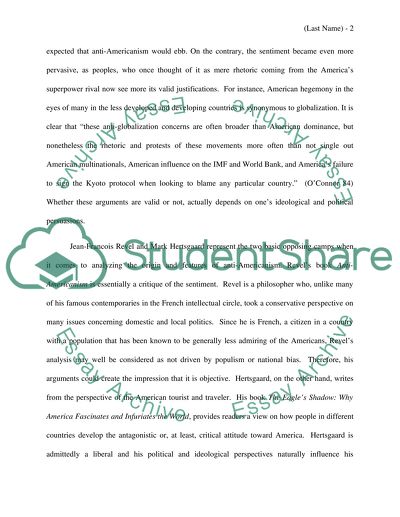Cite this document
(“Revel's and Hertsgaard's Contrasting View on Anti-Americanism Research Paper”, n.d.)
Retrieved from https://studentshare.org/literature/1426174-compare-and-contrast-jean-francois-revel-s-anti
Retrieved from https://studentshare.org/literature/1426174-compare-and-contrast-jean-francois-revel-s-anti
(Revel's and Hertsgaard'S Contrasting View on Anti-Americanism Research Paper)
https://studentshare.org/literature/1426174-compare-and-contrast-jean-francois-revel-s-anti.
https://studentshare.org/literature/1426174-compare-and-contrast-jean-francois-revel-s-anti.
“Revel's and Hertsgaard'S Contrasting View on Anti-Americanism Research Paper”, n.d. https://studentshare.org/literature/1426174-compare-and-contrast-jean-francois-revel-s-anti.


